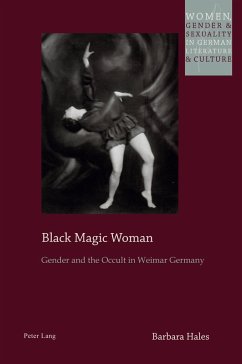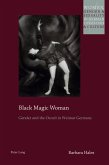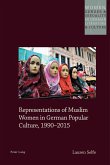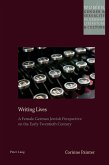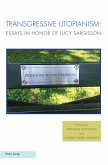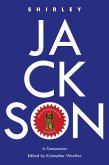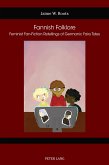This book is a study of women's involvement in occult practices in Weimar Germany. Women during the Weimar period experienced an unprecedented level of liberation. This included a greatly increased role in the work force as well as participation in other realms that were traditionally the province of men. They were also given the liberty to be more outwardly sexualized. Women engaging in occult practices during this period present an interesting example of the liberated woman. The occult woman reversed all traditional gender roles by the pretense of possessing powers that threatened male dominance.
The book investigates the significance of the occult in the Weimar period by drawing on popular, scientific, and legal writings of women's involvement in the occult. In addition to examining reports of women engaging in actual occult practices (expressive dance, mediumism, and witchcraft), this book also considers various fictional depictions of women as demonic or as possessing supernatural powers (ghosts, vampires, and monsters). The author contends that both actual practices, as well as fictional depictions, constructed an imaginary female identity as a dangerous and grotesque monster.
The book investigates the significance of the occult in the Weimar period by drawing on popular, scientific, and legal writings of women's involvement in the occult. In addition to examining reports of women engaging in actual occult practices (expressive dance, mediumism, and witchcraft), this book also considers various fictional depictions of women as demonic or as possessing supernatural powers (ghosts, vampires, and monsters). The author contends that both actual practices, as well as fictional depictions, constructed an imaginary female identity as a dangerous and grotesque monster.
Dieser Download kann aus rechtlichen Gründen nur mit Rechnungsadresse in A, D ausgeliefert werden.
«Connecting history, public discourse, and literary and filmic renditions of 'occult women,' Barbara Hales compellingly demonstrates how these figures are bound up with the fraught position of women in Weimar culture. Her richly textured readings add important nuance to our understanding of the complexity of gender in this era.» (Anjeana K. Hans, Associate Professor of German Studies, Wellesley College, and author of Gender and the Uncanny in Films of the Weimar Republic)
«Excavating a rich, diverse trove of historical sources - from journalism, psychology, and criminology to literature and film - Dr. Hales's cultural history of women and the occult in Weimar Germany exposes a shadowy and little-explored realm of anxiety, pleasure, and power around the rise of the New Woman.» (Valerie Weinstein, Associate Professor of Women's, Gender, and Sexuality Studies and Niehoff Professor in Film and Media Studies, University of Cincinnati, and author of Antisemitism in Film Comedy in Nazi Germany)
«Excavating a rich, diverse trove of historical sources - from journalism, psychology, and criminology to literature and film - Dr. Hales's cultural history of women and the occult in Weimar Germany exposes a shadowy and little-explored realm of anxiety, pleasure, and power around the rise of the New Woman.» (Valerie Weinstein, Associate Professor of Women's, Gender, and Sexuality Studies and Niehoff Professor in Film and Media Studies, University of Cincinnati, and author of Antisemitism in Film Comedy in Nazi Germany)

